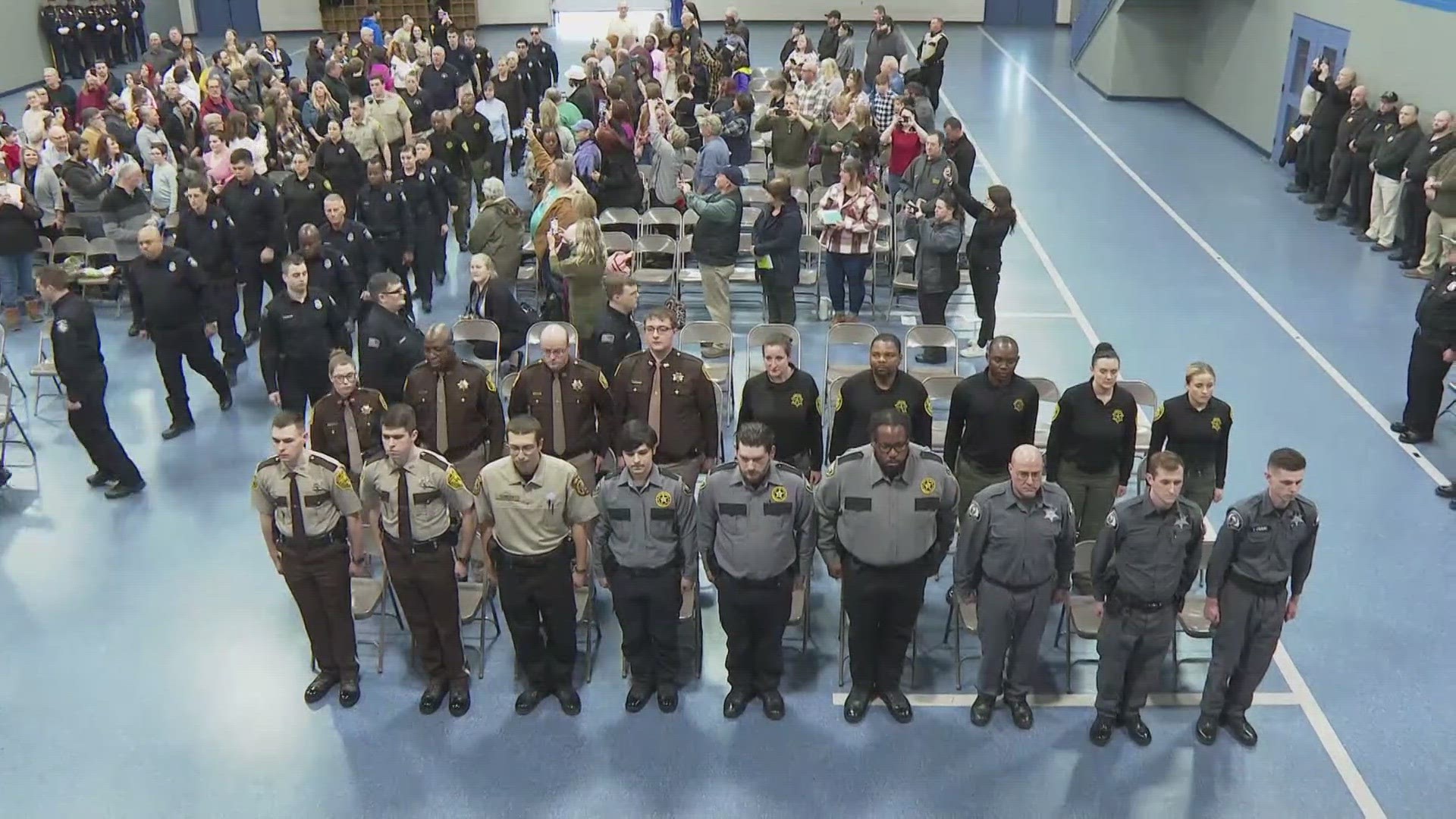VASSALBORO, Maine — A record number of graduates from the Maine Criminal Justice Academy walked the stage Friday, each going to a county jail or prison in the state. Sixty-seven was the number—a hopeful sign to the Maine Department of Corrections for fixing a critical staffing shortage statewide.
The graduation also comes as the largest prison in Maine put many of its leadership positions on administrative leave pending an investigation into hazing, harassment, and inappropriate relationships between staff and inmates.
Department of Corrections Commissioner Randall Liberty said the department is working through the investigation and said they spoke to their new cadets about investigations like this one into the Maine State Prison.
"If something like this happens we do town hall meetings ... I answer any questions they may have about it and I assure them it is a safe, good working environment, and if there are any issues we will address them," Liberty said.
Liberty said in the wake of the hazing part of the investigation, he wants to see more focus on hazing prevention for future training of cadets, like the 67 that walked the stage Friday.
"We do some training right now for hazing but we're going to do much, much more in the future," Liberty said.
As for retention of new employees now and keeping employees they currently have, Liberty said they want to focus on increasing pay and improving work-life balance within jails and prisons. He said the staffing has slightly improved in some of his facilities but averages an 18% staff decline statewide.
"It's really a regional issue but three or four of my facilities are now fully staffed," Liberty said.
One facility that's faced significant staffing challenges is the Cumberland County Jail. Sheriff Kevin Joyce said in 2022 the jail was missing around half of its staff. On Friday, he said things are still around the same.
Five out of the 67 graduates will be going to Cumberland County Jail, which is a significant dent, Joyce said.
"We cross our fingers we can maintain this level," Joyce said.
He added that when staffing levels are low, programs for inmates are limited. He said they want to make sure inmates are prepared for life in society, but programs that help them with that are limited during staffing shortages they've experienced since the COVID pandemic.
"We're doing it from inside the jail but it's not effective," Joyce said.

